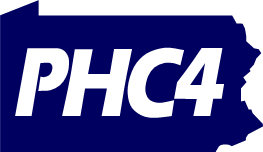
The Pennsylvania Health Care Cost Containment Council (PHC4) published a new set of County-Level Utilization Reports today, displaying the overall total number of inpatient hospitalizations and ambulatory/outpatient cases for Pennsylvania residents.
The information reflects outpatient data from hospital outpatient departments and ambulatory procedure data from freestanding ambulatory surgery centers in Pennsylvania from Quarter 3 of 2024. Also reflected is inpatient data for the same time period from acute care, long-term acute care, rehabilitation, psychiatric, and specialty hospitals, presenting a spectrum of focused data, at a county-level.
Barry D. Buckingham, PHC4’s Executive Director, believes that these reports provide a wealth of insight for stakeholders. “Providing these quarterly County-Level Utilization Reports supports a consistent supply of fact-based data. These insights represent a vast range of facility data and are amongst the timeliest reports available to stakeholders.” The reports are updated every quarter and show the number of cases for each county, with breakouts by patient age, sex, and payer.
These quarterly reports portray the current climate of public health in Pennsylvania and provide focus and perspective. The County-Level Utilization Reports are valued resources for local communities, health care professionals, and policymakers. By fostering a data-driven approach to health care, PHC4 envisions a healthier, more resilient society where resources are allocated effectively, and lives are improved. PHC4 aims to continue to serve its mission of empowering Pennsylvanians through transparency.
PHC4 is an independent council formed under Pennsylvania statute (Act 89 of 1986, as amended by Act 15 of 2020) in order to address rapidly growing health care costs. PHC4 continues to produce comparative information about the most efficient and effective health care to individual consumers and group purchasers of health services. In addition, PHC4 produces information used to identify opportunities to contain costs and improve the quality of care delivered.
For more information, visit phc4.org or access the reports here.
